
Adult monarchs that hatch in late summer or early fall do not mate or lay eggs-their only job is to migrate south to roosting grounds where they will overwinter. The map below left shows the paths they take. Southbound monarchs stop to feed along the way, storing fat that will sustain them for the flight and throughout the winter in their abdomens. In spring, these same monarchs begin the trip back north, laying eggs on milkweed plants in the southern United States before dying. Newly hatched caterpillars feed on the milkweed. When they reach adulthood, they continue the journey north, feeding and laying eggs along the route until the third or fourth generation reaches the home of its ancestors from the previous year.
This process takes a lot of energy. Loss of wildlife habitat has been detrimental to the monarch, both in nectar plants for adult butterflies and milkweed host sources for feeding caterpillars. Monarch Watch, an education, conservation and research organization dedicated to preserving this butterfly's population, has established the Monarch Waystation program to encourage home and public gardeners to feed and house these insects along their migration routes. You may already have most of the features of a successful waystation in your garden.
Monarch migration
This story is from the {{IssueName}} edition of {{MagazineName}}.
Start your 7-day Magzter GOLD free trial to access thousands of curated premium stories, and 9,000+ magazines and newspapers.
Already a subscriber ? Sign In
This story is from the {{IssueName}} edition of {{MagazineName}}.
Start your 7-day Magzter GOLD free trial to access thousands of curated premium stories, and 9,000+ magazines and newspapers.
Already a subscriber? Sign In
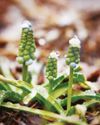
Backyard Tornado
\"HE WHO SEARCHES FOR SPRING WITH HIS KNEES IN THE MUD FINDS IT, IN ABUNDANCE.\" - ALDO LEOPOLD
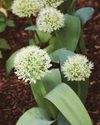
Front-of-the-Border "Wow!" Power
When it comes to easy-care plants that bring a lot of punch to the border, 'Ivory Queen' Turkestan onion should be near the top of your shopping list.
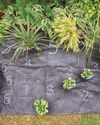
GARDEN ESSENTIALS
MAKE GARDENING EASIER THIS YEAR

Elevate an Evergreen Hedge
Although an evergreen hedge looks suitable all year on its own, it's perfectly poised to become something even greater: a backdrop to a garden where flower after flower will unfurl with such drama, you just might find yourself stepping outside and offering your applause.

One Garden, Two Worlds
In this colorful and welcoming garden, sunny, flower-filled front borders transition to a shady backyard hideaway.
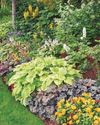
on edge
Four garden pros share their go-to edging techniques.

DIANTHUS
Add fragrance, vivid color and timeless charm with this reliable, cold-hardy perennial.
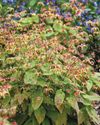
2025's Best New Plants!
Are you ready to start planning for next year's garden? A few new plants might be just what you need to bring those dreams to reality.
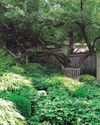
Solve Garden Problems With Ground Covers
Are you tired of coaxing turfgrass to grow in difficult spots? In her book Groundcover Revolution, Kathy Jentz says that ground covers can be the solution to these struggles.

The Romance of Spring
With the arrival of spring, emerging perennials fill the garden with soft texture, restoring life to the harsh, often barren landscape of winter.